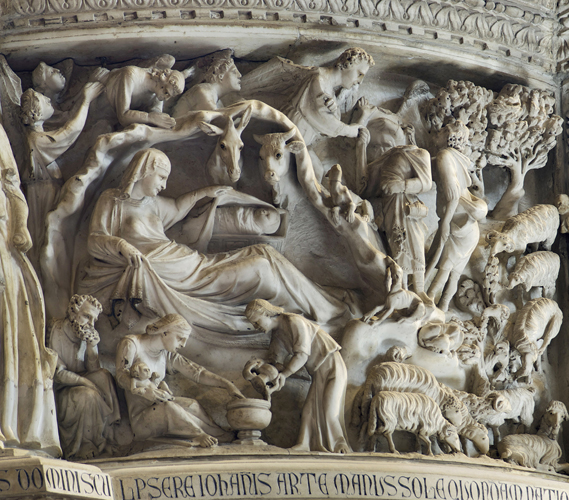Compare Beowulf and Roland as heroes, with special attention to how each figure demonstrates the quality of loyalty
Please provide the best answer for the statement.
1) Beowulf opens with Beowulf’s arrival from Sweden to rid the Danes of the monster Grendel, which he soon accomplishes. Subsequently, Grendel’s mother attacks in an even more fearsome battle, which again Beowulf wins. Hrothgar, king of the Danes, reminds him of life’s fragility, and, with these words in mind, Beowulf returns home to Sweden with his men and rules well. Fifty years later, however, he meets a dragon. Resigned to the fact that only he of all warriors can defeat the dragon that is menacing his loyal people, he exhibits the courage and loyalty to his vassals that define the warrior’s world in the Middle Ages.
2) In the Song of Roland, Roland is an ideal feudal hero, courageous and loyal, though he possesses—or is possessed by—a sense of pride that inevitably leads to his demise, just as Beowulf’s self-confidence leads to his. It is out of a sense of duty that Roland turns to face the Saracens—duty to Charlemagne, his lord, and by extension, duty to the Christian God in the battle against Islam. The reward for such dutiful combat is, as he says, the love of his king. Indeed, Roland ultimately sacrifices all for his king and his God. In his slow and painful death, he becomes a type for Jesus, sacrificing himself for all of Christendom.
3) The Song of Roland is one of the earliest expressions of feudalism’s chivalric code. The term chivalry (from the French chevalier, “horseman”) expressed the qualities of an ideal knight. Something very like this set of values already exists in Beowulf, though the latter is not a Christian poem. It is also notable that Beowulf’s loyalty is directed principally downward, toward his people, whereas Roland’s loyalty is directed upward, toward his lord (and Lord).
You might also like to view...
Which of the following best describes the demands made on the performer in this selection?
a) prelude b) sonata c) mazurka d) étude
?

A. Italo-Byzantine B. French Gothic C. Hellenistic D. Classical